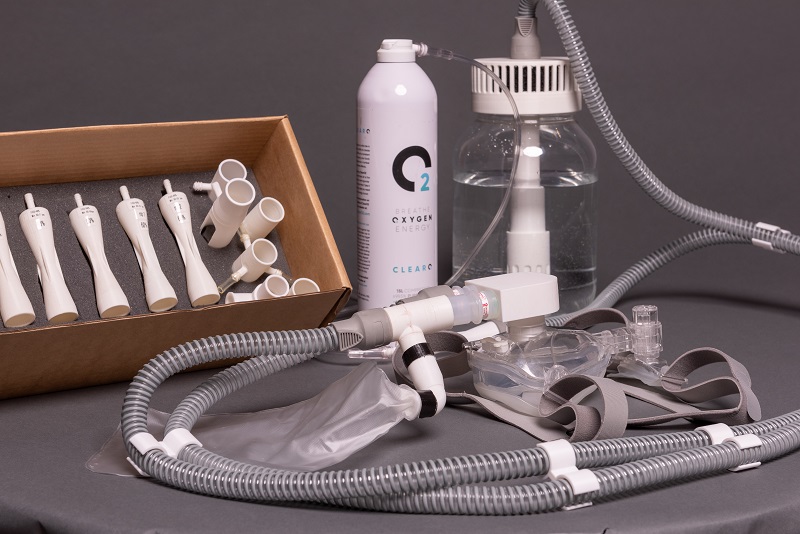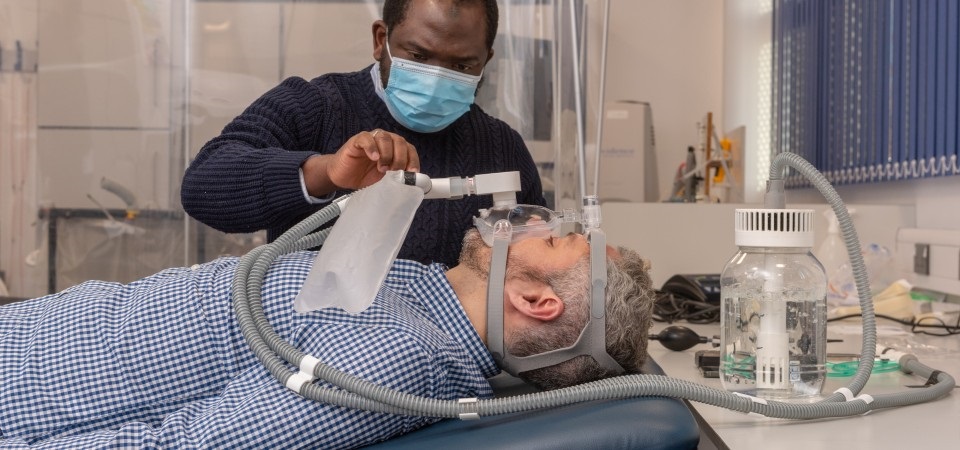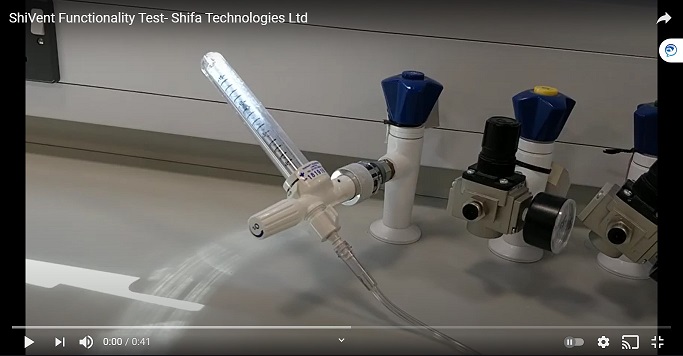The ShiVent system was created to allow non-specialised workers to treat patients with coronavirus.
The team - Yusuf Bilesanmi, Ricardo Nascimento, Dr Yusuf Shittu, Gaurav Nanajkar and Pawel Nycz - designed the ventilator with four key features:
- Simple to use – by the average health workers and takes only 30 minutes of training
- Low-Cost – can be produced at a very small fraction of the price of the average ventilator
- Non-Electric – making it suitable for hospital settings with unreliable power
- Oxygen-Efficient – requiring almost as little as a third of the average oxygen consumption of High Flow Oxygen systems
ShiVent has been tested at Loughborough’s National Centre for Sports and Exercise Medicine (NCSEM) and the Leicester Royal Infirmary Hospital.
It has also had a preliminary clinical functionality test at Glenfield Hospital.
Next month, a shipment of five units is being sent to Lagos, Nigeria, with more ventilators heading for Pune, in India, shortly after.
Following trials in Lagos and Pune, the team plans to roll out the system in Sub Saharan Africa and Asia and is in the process of exploring opportunities in South America as well.
Yusuf, a Nigerian who enrolled for his PhD in Loughborough in 2019, said: “ShiVent is designed for under-resourced areas where mechanical ventilators are scarce and expensive, with unreliable electricity supply and limited specialist knowledge.
“Currently, Lagos uses around 400 cylinders of oxygen a day, at 15 litres of oxygen per minute (lpm).
“The ShiVent only requires between 5 lpm to 12 lpm depending on the patient's respiratory condition.
“With a global surge in Covid-19 cases, many countries’ healthcare systems lack the capacity to tackle this new challenge. Nigeria has as few as 288 mechanical ventilators serving almost 200 million people.
“The ShiVent is a simple, low-cost ventilatory alternative which does not depend on electricity and is widely replicable.”
 Credit: RAEng/HollisPhotographyUK
Credit: RAEng/HollisPhotographyUK
The system works by connecting hospital patients to an existing oxygen source and blends air with the high-flow oxygen supply.
The patient inhales oxygen to fill up the lungs and then exhales into a water column creating back end pressure that keeps their airway open.
It is based on the principles of bubble continuous positive airway pressure (CPAP) - a non-invasive ventilator used for new-born babies developed by Dr Yusuf Shittu, of the Nuffield Hospital in Leicester – a co-founder of the ShiVent system.
The other co-founders are Gaurav Nanajkar, Pawel Nycz and Ricardo Nascimento – all from Loughborough University.
ShiVent combines knowledge and experience from different areas of science, Ricardo Nascimento, a PhD student of Design and Creative Arts, is responsible for prototyping and user experience expertise.
Dr Yusuf Shittu of the Nuffield Hospital in Leicester provides medical expertise.
The engineering, design, simulation, and testing parts of the project are led by two PhD students from the Centre for Renewable Energy Systems Technology (CREST) – Gaurav Nanajkar and Pawel Nycz.
The founder and team leader is Yusuf Bilesanmi, a PhD student of Architecture Building and Civil Engineering.
The ventilator has caught the attention of the Royal Academy of Engineering, and Yusuf is in the running for the Africa Prize for Engineering Innovation.
Applications are invited from entrepreneurs and engineers in sub-Saharan Africa who have developed an innovative product or service that can provide scalable solutions to local challenges, with a particular emphasis on sustainable social and economic development.
He is up against 16 other contenders.
Four finalists will be selected from the shortlist in June and invited to pitch their improved innovation and business plan to the judges and a live audience.
A winner will be selected in July to receive £25,000, and three runners up will receive £10,000 each.
Speaking about being shortlisted, Yusuf said: “I am elated and humbled. Deeply grateful for all the support we had received to get the product working and highly hopeful that it will serve its intended purpose of saving lives.”
Main image Credit: RAEng/HollisPhotographyUK
ENDS

